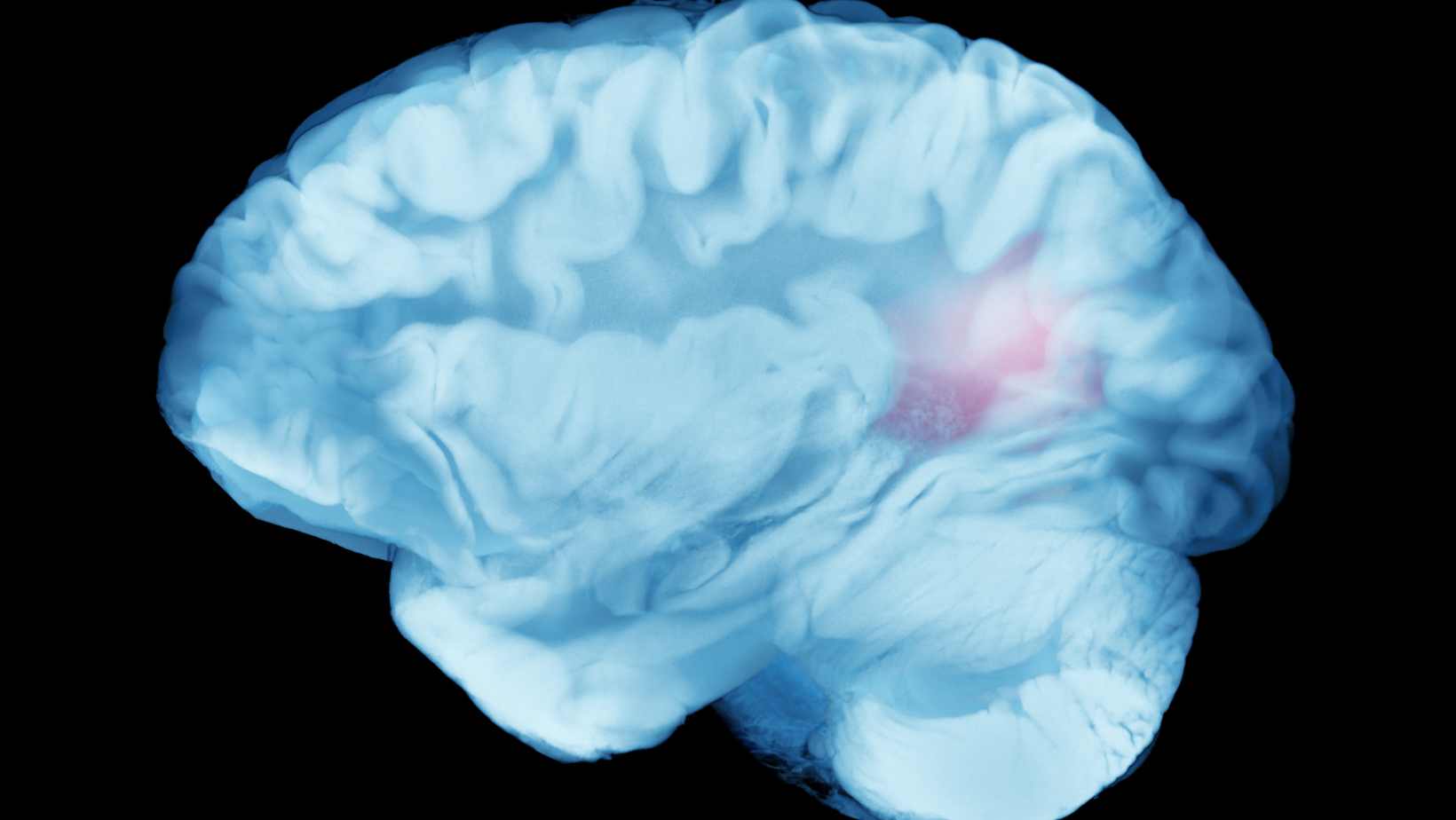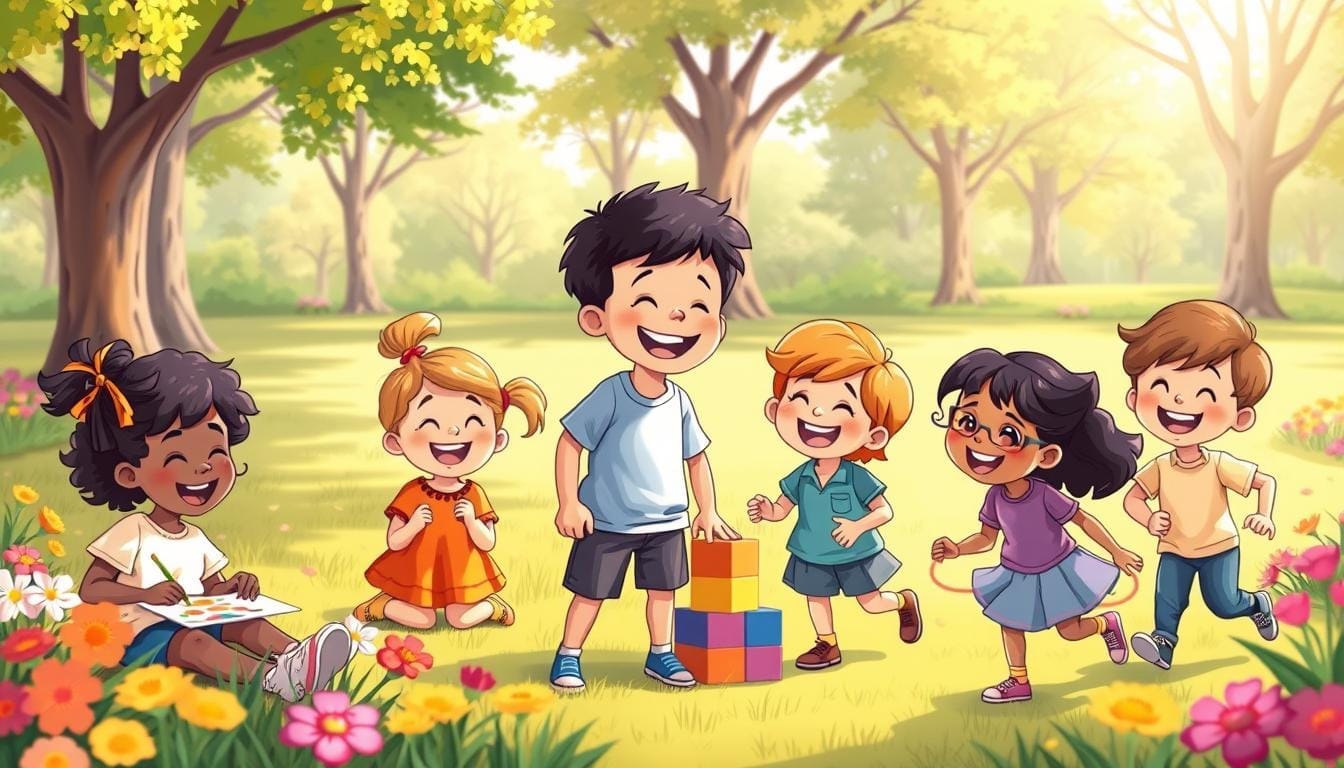Developmental delays are a big worry. About 1 in 6 kids in the U.S. face at least one delay. These delays happen when a child grows slower than others in emotional, mental, or physical ways.
They can affect language, vision, motor skills, social skills, and thinking. It’s key to help kids early to make sure they do well.
Unlike lifelong disabilities, delays can often be fixed with early help. Spotting early signs helps parents get the right support. This way, kids can catch up and face challenges head-on.
Delays show up in many ways. It’s important to watch a child’s growth in different areas. This includes thinking, social and emotional skills, talking, and moving.
Knowing about developmental milestones is crucial. It helps spot delays early. This way, kids get the help they need right away.
Table of Contents
ToggleUnderstanding Developmental Milestones
Developmental milestones are skills and abilities kids get as they grow. They cover physical, cognitive, social, and emotional areas. Watching how a child meets these milestones helps spot delays early.
Definition of Developmental Milestones
Developmental milestones are specific skills kids should show by certain ages. For instance, a 6-month-old should reach for toys. By 12 months, they should walk with support. These milestones help check if a child is growing right.
Importance of Monitoring Progress
It’s key to watch how a child grows. Kids grow at different speeds, but big delays mean something might be wrong. Early help is vital to lessen the impact of delays.
Doctors and early childhood experts do regular checks. These help see how a child is doing and find any issues. Quick action helps kids get the help they need to grow well.
Common Types of Developmental Delays
Children can face different kinds of developmental delays. These delays can affect their growth in many ways. Some common types include speech and language delays, motor skill delays, and cognitive delays.
Speech and Language Delays
Children with speech and language delays might find it hard to talk or understand others. This could be because of several reasons. It might be due to problems with hearing, brain damage, or genetic conditions.
Motor Skill Delays
Motor skill delays can affect a child’s ability to move and handle things. They might struggle with crawling, walking, or even simple tasks like holding objects. These issues could stem from genetic problems, muscle disorders, or other structural issues.
Cognitive Delays
Cognitive delays can make it tough for kids to solve problems or learn new things. They might have trouble following instructions or grasping new concepts. These delays are often linked to learning issues and can be signs of conditions like autism or Down syndrome.
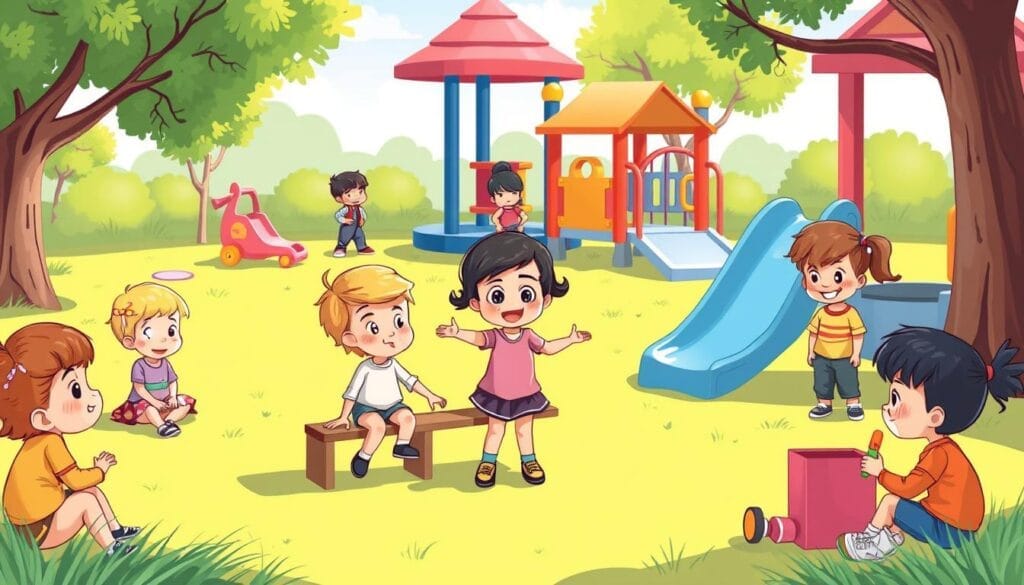
Some kids face delays in more than one area, leading to a diagnosis of global developmental delay. Early help and support are crucial for these children. They can reach their full potential with the right care.
Signs of Delays from Birth to 12 Months
In the first year, it’s important to watch for signs of developmental delays. Finding and fixing these issues early helps a child grow well. This includes infant development, early signs of delays in motor skills and sensory processing.
By 3-4 months, babies should react to loud noises and babble. But, studies show 25% of 2-3 month olds don’t react to loud sounds. Also, 20% of 4-6 month olds don’t watch moving objects.
Not making eye contact or not responding to sounds can be signs of delays. By 7 months, babies should react to sounds and play sound games. Yet, 18% of 4-6 month olds don’t copy sounds they hear.
Physical motor skill delays include not holding the head up by 3-4 months. Not rolling over by 5 months or sitting without help by 9 months are also signs. Research shows 32% of 2-3 month olds can’t hold their head up when on their tummy. And 25% of 1 year olds don’t crawl.
Constant eye turning or limited eye tracking may mean vision problems. It’s very important to act fast to help these developmental delays. This helps the child grow and stay healthy.
Signs of Delays from 1 to 2 Years
When toddlers hit the 1 to 2-year mark, some signs may show they’re not developing as expected. These include limited vocabulary, trouble following simple directions, and not wanting to play with others.
Limited Vocabulary
By 1 year, kids should say single words. By 2, they should use at least 15 words and start making two-word phrases. If they’re not hitting these marks, it could mean they’re facing a toddler development or language delay.
Difficulty Following Simple Instructions
At this age, kids should get simple one-step commands, like “Get your shoes” or “Bring me the ball.” Trouble with these shows a possible cognitive or social skills delay.
Lack of Interest in Social Interaction
Healthy toddlers love playing games, answering to their name, and knowing who’s who. If they don’t show interest in these, it might mean they’re lagging in social skills. Getting help early is key to overcoming these issues.
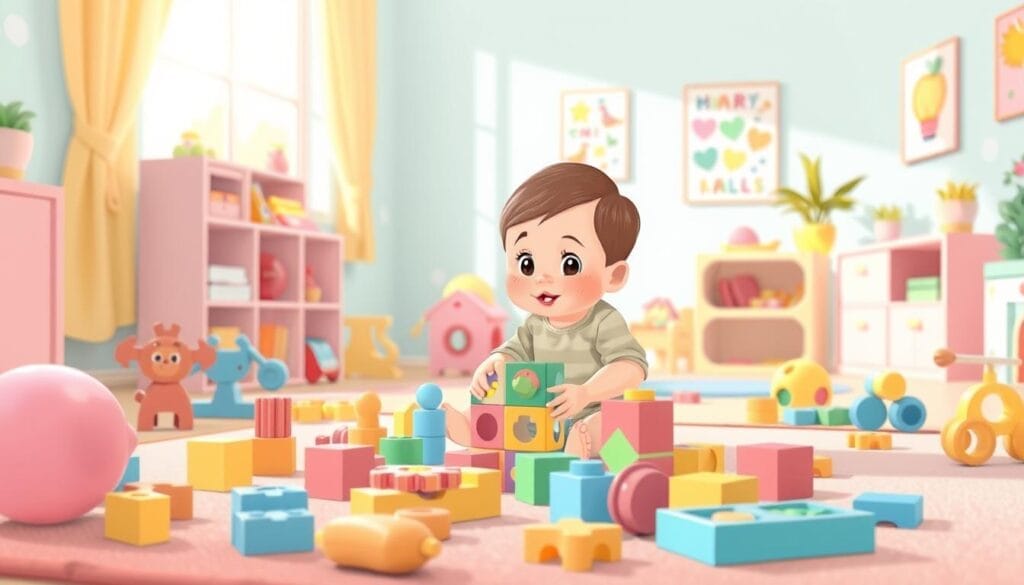
Signs of Delays from 2 to 3 Years
When kids get to 2 to 3 years old, parents need to watch for signs of delays. These can be trouble with play, potty training issues, and not being able to show feelings well.
Difficulty with Play and Imaginative Activities
At this age, kids should love pretend play and follow simple rules. If they don’t want to play or can’t be creative, it might be a sign of a problem.
Trouble with Potty Training
Potty training is a big step for 2- to 3-year-olds. If they don’t want to use the toilet or have trouble controlling their bladder, it could mean they need help.
Limited Ability to Express Emotions
Feeling and showing emotions is key for kids at this age. They should be able to talk in sentences and show different feelings. If they can’t, it might be a sign of a delay.
If you see these signs in your child, talk to a doctor right away. Early help is very important for their growth and learning.
Signs of Delays from 3 to 5 Years
Children from 3 to 5 years old should show good [preschool development] in [social skills], [motor coordination], and [cognitive development]. But, some might show signs of developmental delays during this time.
Trouble with Basic Concepts
At this age, kids should be able to follow simple commands and speak clearly. They should also know about plurals and past tense. If they can’t give their name or don’t understand colors, shapes, and numbers, it’s a sign of delay.
Difficulty with Social Interactions
Preschoolers usually show many emotions and play well with others. Kids with social skill delays might find it hard to show their feelings. They might also have trouble making friends or act in ways that affect their social life.
Lack of Coordination in Physical Activities
By 3 to 5 years, kids should be better at [motor coordination]. They should be able to jump, use stairs, and get better at drawing and using utensils. If they struggle with these, it could mean they’re delayed.
If you notice any of these signs, see a healthcare professional right away. Early help is key to catch up on developmental delays. Visit our website to learn more about signs of developmental delays in children.
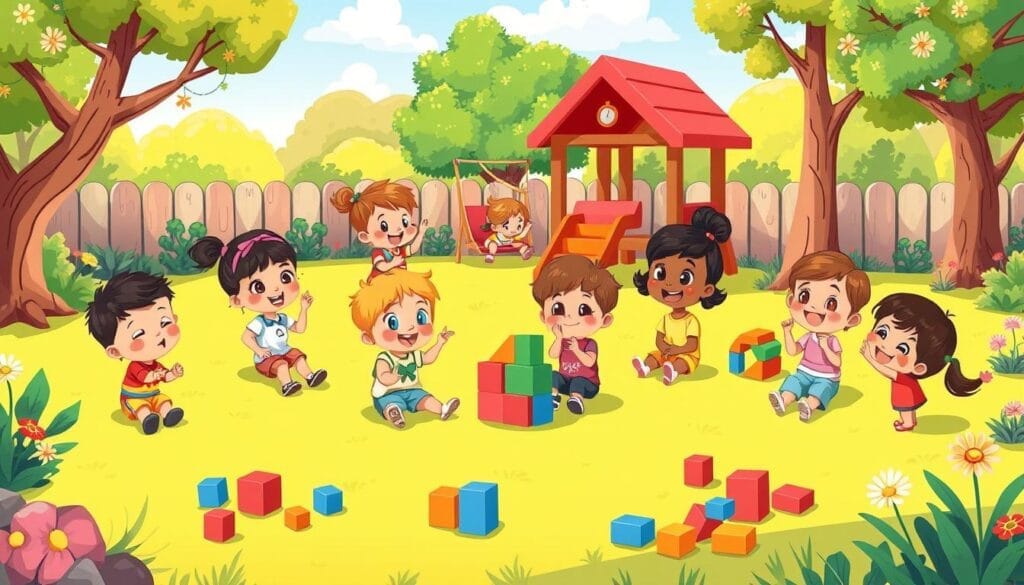
Behavioral Indicators of Developmental Delays
Children with developmental delays often show certain behaviors. They might react strangely to sounds, textures, or sights. They might also struggle with changes in their routine.
These signs can point to autism spectrum disorder or sensory processing disorders.
Unusual Reactions to Sensory Inputs
Children with delays might be very sensitive or not care about certain sounds, textures, or sights. They might feel too much or not enough from sensory experiences. This can make simple tasks hard, like getting dressed or playing outside.
Resistance to Changes in Routine
They might also find it hard to switch between activities or get upset by changes. When their routine is broken, they might act out or feel very upset. This makes it tough for them to handle new things and meet new people.
Knowing these signs can help parents and doctors spot delays early. They can then get help like occupational or speech therapy. This support can help the child grow and develop better.
Assessing Developmental Delays
As parents, knowing the signs of developmental delays is key. Pediatricians do developmental screenings during check-ups. This helps spot issues early. If there’s a concern, more professional assessments might be needed for a full check.
When to Consult a Professional
Parents should talk to a healthcare pro if they see delays in their child. These can be in speech, motor skills, or thinking. Getting early intervention is very important. It can really help a child’s development.
Types of Evaluations Available
- Comprehensive developmental evaluations to check overall progress
- Speech and language assessments to find communication problems
- Occupational therapy evaluations to look at motor skills
- Psychological testing to check thinking and feelings
These pediatric evaluations use tests, observations, and talks with parents. They help find and fix developmental delays.
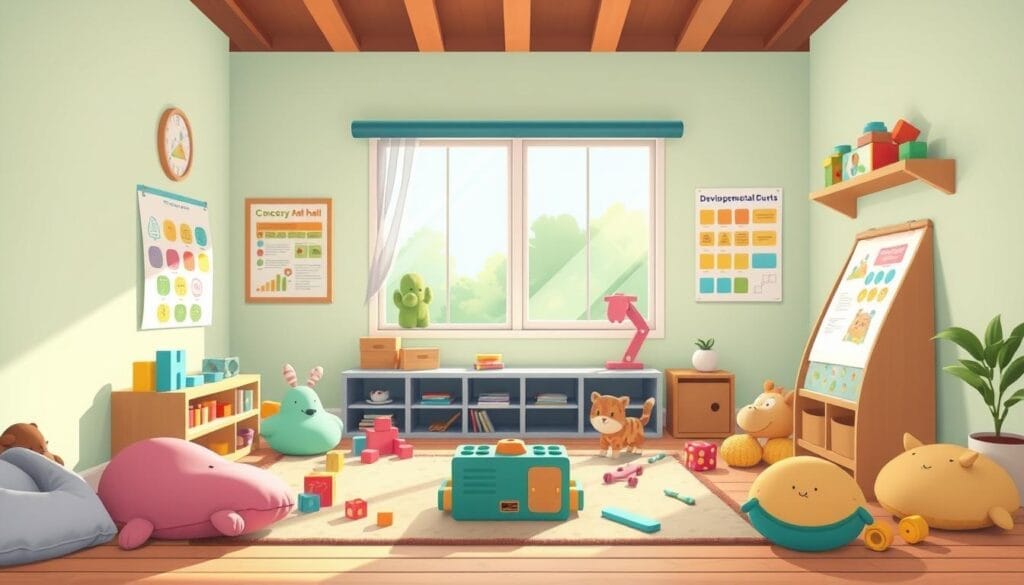
Spotting and acting on developmental delays early is vital. Working with healthcare pros and using the right developmental screening tools helps. This way, parents can make sure their child gets the help they need to do well.
The Role of Parents and Caregivers
Parents and caregivers are key in helping kids with developmental delays. They watch and write down their child’s actions, milestones, and any worries. This helps a lot in early help and support for growth.
Observing and Documenting Behaviors
It’s important to watch and write down a child’s actions, skills, and growth. Parents and caregivers should keep a detailed log of any delays or steps back in speech, language, motor skills, thinking, and social skills. This info is very helpful when talking to doctors about developmental issues.
Encouraging Developmental Activities at Home
Doing activities at home that match a child’s age can really help them grow. This means reading every day, talking a lot, and playing in a learning way. Parents can also help with speech and language and make sure kids get to move around to help with motor skills. It’s key to talk to doctors about what they see to get the right help early.
By really getting involved in their child’s growth, parents and caregivers can change a child’s life. Their watching, writing, and making a caring, learning space at home can really help a child do well and be happy.
Supporting Children with Developmental Delays
Early intervention programs are key for kids with developmental delays. They might include speech, occupational, physical therapy, or special behavioral help. Each child gets a plan that fits their needs, aiming to lessen delays and help them grow.
Early Intervention Programs
About one in six kids in the U.S. face developmental disabilities. Early help, from birth to three years, can make a big difference. It tackles issues in thinking, talking, moving, and feeling, helping kids reach their best.
Resources and Support Networks
Families of kids with delays face big challenges. But, there’s lots of help out there. Support groups offer a place to share, learn, and feel less alone. Places like Family Connection of South Carolina help find local groups.
There are also educational tools and community services. They give families the tools to support their child’s growth. This helps build strong relationships and sets the stage for success in school and life.
FAQ
What are the signs of developmental delays in children?
Signs include not making eye contact and not responding to sounds. They also include delayed physical movements and a small vocabulary. Other signs are trouble following instructions and not wanting to play with others.
What are the common types of developmental delays?
Common delays are in speech, motor skills, and thinking. These affect how a child talks, moves, and learns.
How can parents and caregivers identify developmental delays in their children?
Watch your child closely and note any delays. Keep track of their progress and compare it to milestones. This helps spot delays early.
When should parents consult a professional about developmental concerns?
See a doctor if your child’s development is slow. Doctors check for delays during visits. They might suggest more tests if needed.
What types of evaluations are available for assessing developmental delays?
There are many evaluations, like full developmental checks and speech tests. Occupational therapy and psychological tests are also used. These help find and understand delays.
How can parents and caregivers support children with developmental delays?
Support your child by doing fun activities together. Read, talk, and play with them. Also, work with doctors to find the right help.
What are the benefits of early intervention for children with developmental delays?
Early help can greatly improve a child’s life. It includes special therapies and programs. These help kids reach their full potential.

Dr Chandril Chugh
Dr. Chandril Chugh, a renowned American Board-Certified Neurologist, is just a click away. With years of global experience, he offers trusted neurological guidance online.
→ Book a consultation to discover which remedies suit your needs best.


